AUGUSTA — Crisis worker Todd Stevens and patrol officer Chris Guay knocked on the door of the apartment building as city traffic rushed by on a sweltering Friday afternoon, but got no response from the woman inside.
Her worried mother had called Crisis and Counseling, the mental health agency where Stevens works, because her daughter, who had made significant attempts to take her own life previously, wouldn’t answer her phone or come to the door. She had seemed very down lately.
After searching unsuccessfully for another way to gain access or get the woman’s attention, they called the landlord who, after 40 minutes or so, arrived with a key.
They entered a back door after discovering the front door had been barricaded, yelled for the woman and heard a slight groan. They found her lying down, pills and at least one open pill bottle scattered around her, disoriented and complaining she was cold. They called for rescue, and as her mother looked on, she was taken out of the apartment and put in an ambulance to be taken to the emergency room at MaineGeneral Medical Center. Stevens expected her to stay there — if she didn’t check herself out — for a few days until an available bed in a hospital offering psychiatric treatment could be located.
Behavioral health crisis workers with Crisis and Counseling, in an expansion of its Midnight Team ride-along program that began in Waterville in the 1990s, are now riding along with Augusta police patrols on some night shifts with plans to expand that to nearly every night of the week.
Stevens said he’s not sure if the woman would have lived or died if she hadn’t been discovered when she was, in part because it was unclear what type of pills she had taken. He said another Crisis and Counseling worker would follow up with her later when she was capable of answering questions to do a full assessment.
Then it was back to the Augusta police station for Stevens to meet up with another Augusta patrol officer and go back out on patrol, because it was beyond time for Guay, also trained and experienced in crisis intervention and who had already worked well beyond his scheduled shift, to go home.
Another crisis worker had tried to help the same woman just 24 hours before, when she was conscious but refused to let the worker enter her apartment, only talking briefly through the barely-cracked front door.
“It can be frustrating, seeing the same people over and over,” Stevens acknowledged. “But if you can save one life, to me, that’s what it’s all about.”
‘MORE RESPONSIVE’
The program aims to assist both police and people with mental health and substance issues or others in crisis as they interact with each other to help prevent situations from escalating unnecessarily and prevent unneeded arrests and hospitalizations.
The crisis workers can provide immediate assessment and other help, preventing costly visits to hospital emergency rooms. The workers also may have previous experience and access to records and knowledge of the histories of people in the community with mental health issues. They are able to tell if they haven’t been taking their medications and are better able to recognize symptoms that an individual may be in the midst of a mental health crisis.
That should be especially helpful in a city like Augusta where, since the de-institutionalization of the former Augusta Mental Health Institute reduced the number of psychiatric hospital beds, the city has seen more mental health consumers in the community, according to Police Chief Robert Gregoire.
“We deal with mental health consumers every day, every shift,” Gregoire said. “As a department, we’re more responsive to the mental health community, having a rider (on patrol at night) that is a trained counselor. And it provides a mentoring opportunity for my newer officers, where they see case workers at work and the things they do.”
Gregoire noted people with mental health issues are as likely to be victims as anyone else, so police don’t always deal with them as perpetrators of crimes or complaints. Often they’re the victims, and being able to communicate with them better with the help of trained professional counselors helps in either situation, Gregoire said.
The crisis workers often assist police in communicating with suicidal people, on domestic violence calls involving children with disruptive behaviors, with people with substance abuse issues and people with questionable ability to take care of themselves, according to Tara Karczewski-Mitchell, the manager of Crisis and Counseling Centers’ Crisis Mobile Triage and part of the Midnight Team, which she now leads, since the late 1990s.
“We’re here if you need us. That’s what we do,” she said. “It gives police a resource that generally might not be available to them. We see one or two people a night.”
While police undergo at least some training on dealing with people in mental health crisis, Marc Moreau, a crisis worker on the Midnight Team since March, who joins both Waterville and Augusta police on night patrols, said an officer may not always recognize the symptoms an individual is showing that could be a precursor to a more severe mental health crisis. The crisis workers in those situations can meet with the individuals, such as those suffering from post-traumatic stress disorder, to help them, or if they need further help, refer them to the help they need.
The program, after many years in Waterville, expanded to Augusta about a month ago. There’s been no cost to the city so far.
HELPING HAND
The program began in Waterville in 1996 following the double homicide of two nuns at the Servants of the Blessed Sacrament convent by Mark A. Bechard, who was committed to a state psychiatric hospital after he was found not criminally responsible by reason of mental illness.
Bechard’s history of mental instability, according to a press release from Crisis and Counseling, revealed a lack of communication among first responders and a gap in the system of care.
“We recognized after that tragedy that there were a lot of people in the community who suffered from mental health problems,” Waterville Police Chief Joseph Massey said in the press release. “At that time we didn’t share a lot of information or work closely with mental health professionals.”
Alicia Hafford, a peer support specialist at LINC, or Living in the Community, Wellness and Recovery Center in Augusta, said she thinks having trained counselors riding along with police is a good idea and can help someone in the midst of a crisis. LINC helps people like Hafford who have their own mental health or substance abuse issues.
“In most cases, if you hear someone yelling and screaming, they’re dealing with emotions (police responding to a call) don’t understand,” she said. “Having somebody trained, who can respond and go there and listen, helps. If you can talk to them, it gives them power over what’s going on.”
Guay, who because of his experience as an officer and in crisis intervention helps the National Alliance on Mental Illness train others, said he’s been on so many calls involving people with mental illness in Augusta he feels like he’s a crisis worker, too. Friday’s call was his fourth call to assist someone in crisis that day. He said he meets with officials of area mental health agencies to discuss local clients they’re having difficulty with.
“We’ll compare information and look at where can we all work with this client to help them get in a better situation, rather than keep dealing with them on the street,” Guay said.
Stevens said some people with mental health issues may not trust or be willing to talk to police. In those situations, he said, a crisis worker can help by talking to the person and conduct an assessment of their mental health to decide whether they’re okay, need further help or need a trip to the emergency room.
He recalled a recent incident where a 17-year-old boy was seen by Crisis and Counseling after he put a loaded gun to his head. He said they recommended inpatient treatment for him at a hospital, but the family did not agree to do so. He was discharged from the hospital, and Crisis and Counseling got a call two days later saying the boy had made suicidal statements and put a knife to his throat.
Police arrived, but the boy said he didn’t want to talk to police, nor did he even want police there. Stevens, however, was able to talk to him, and the boy eventually agreed to return to the hospital for treatment.
Karczewski-Mitchell said the Crisis and Counseling assistance to the police department in Augusta is at no cost to the city, though she said if the service is to continue long term the agency may need to speak with the city about funding. She said when crisis workers are dealing with clients in the field, their insurance is billed for the services provided. She said the program in Waterville is partially funded by a grant.
She said ability to pay via insurance or other ways isn’t a consideration in whether someone gets treatment.
“Cost is not a factor for us. We want to see everybody regardless. Safety overrides ability to pay,” she said.
She said for now a crisis worker rides on patrol in Augusta two nights a week, but the agency is hiring more workers to expand that within the next couple of months to get up to seven nights a week.
A crisis unit is also on call 24 hours a day, seven days a week, but crisis workers being assigned to police patrols makes them more readily available to provide services on the spur of the moment, preferably before situations escalate.
She and Gregoire said the service is offered at night because that’s when mental health agencies and other service providers are generally closed.
KEY TRAINING
Gregoire and Lt. Kevin Lully noted Augusta, until a few years ago, had its own state Bureau of Mental Health caseworker assigned to assist police with people with mental illness and other issues. However, state funding for the program was shifted to other areas, and the position was cut.
Gregoire, however, said talks are underway with the state Department of Health and Human Services for an intensive caseworker to once again be assigned specifically to work with Augusta police.
Lully said police and city administration are strongly in favor of police working to improve their ability to interact successfully with people living with mental illness. He said almost 70 percent of the department’s officers have been trained and certified as members of Crisis Intervention Teams with assistance from local providers and the National Alliance on Mental Illness.
He said crisis workers provide guidance to officers as they encounter people in the community in need of mental health-related assistance.
More information about Crisis and Counseling, a nonprofit agency which serves individuals with behavioral health needs including substance abuse, mental health and co-occurring issues, is available online at crisisandcounseling.org. People in crisis may call 1-888-568-1112 for assistance.
“This is not a problem that will go away, so it’s critical that we keep this Midnight Team project and relationship going,” Massey said. “It’s proved to be a valuable program, not only for the police and the community, but primarily for the person who is in that darkest moment — that crisis — and needs help.”
Keith Edwards — 621-5647
kedwards@centralmaine.com
Twitter: @kedwardskj
Send questions/comments to the editors.


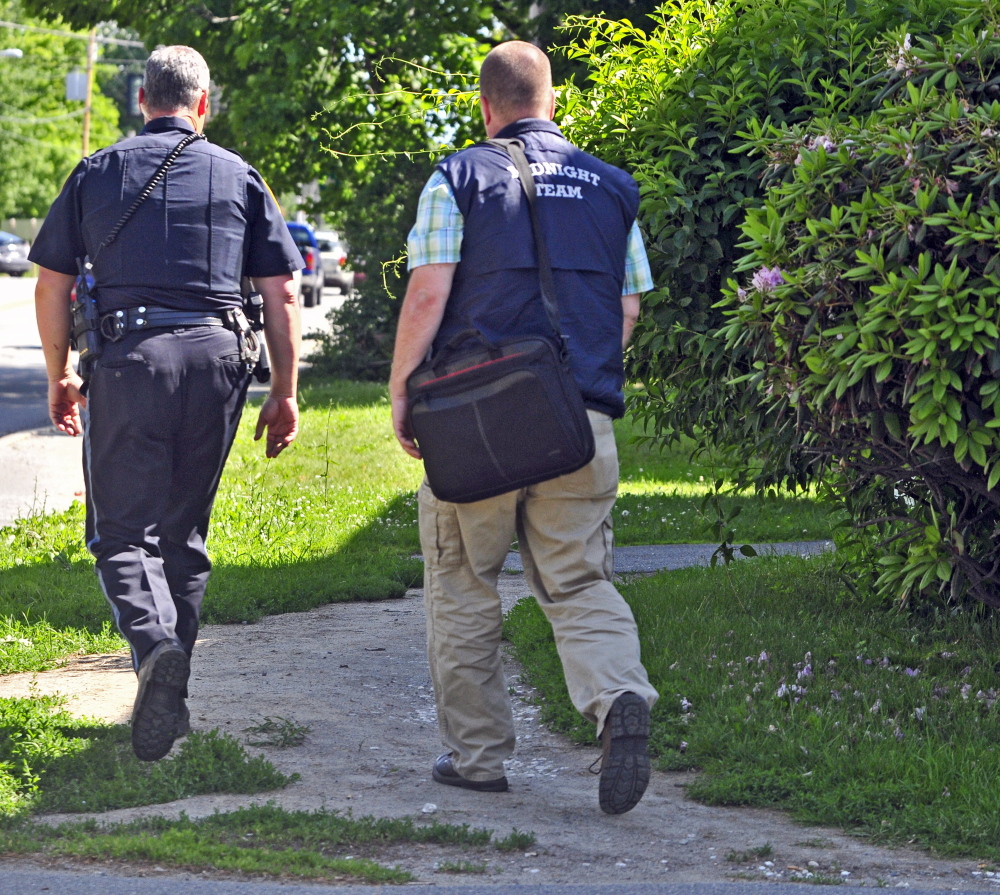
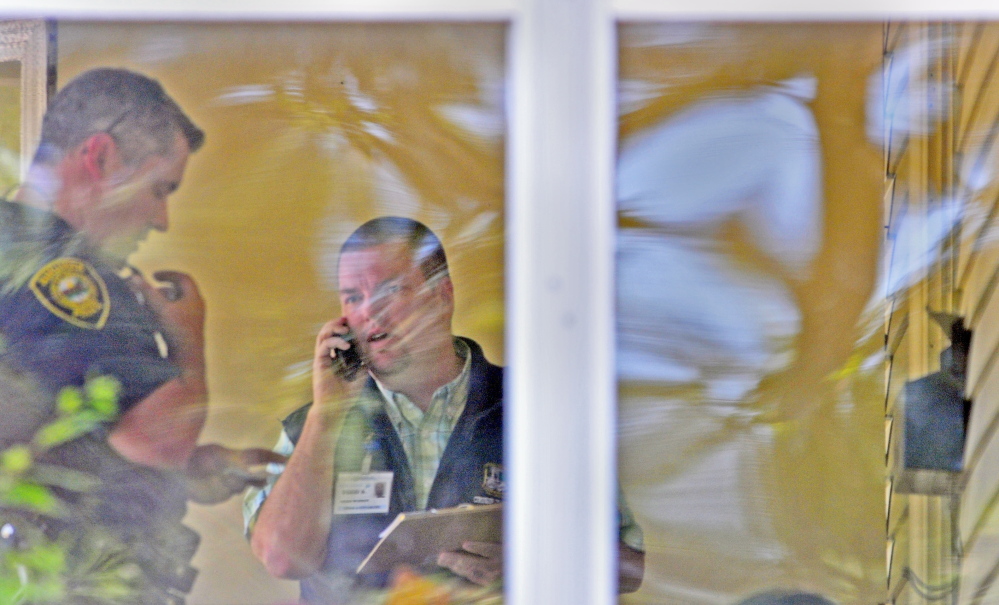
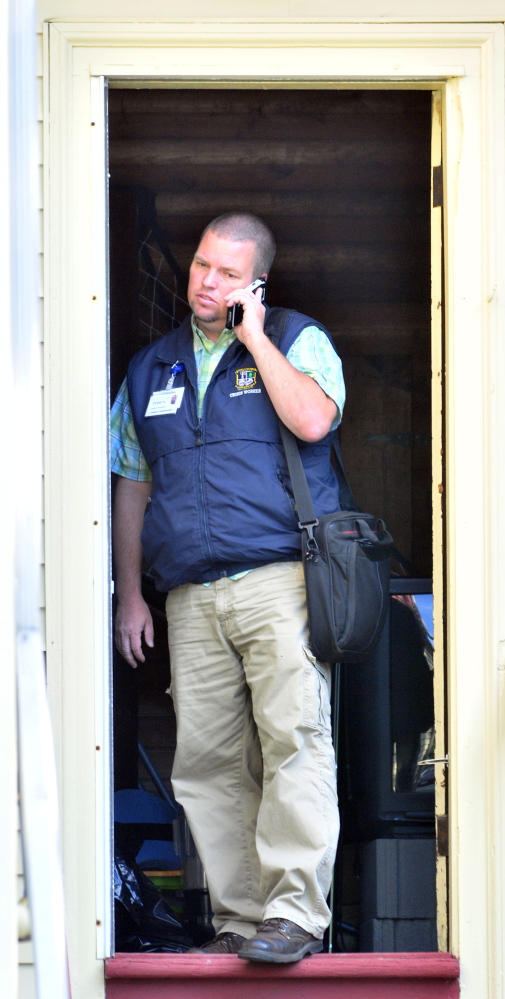
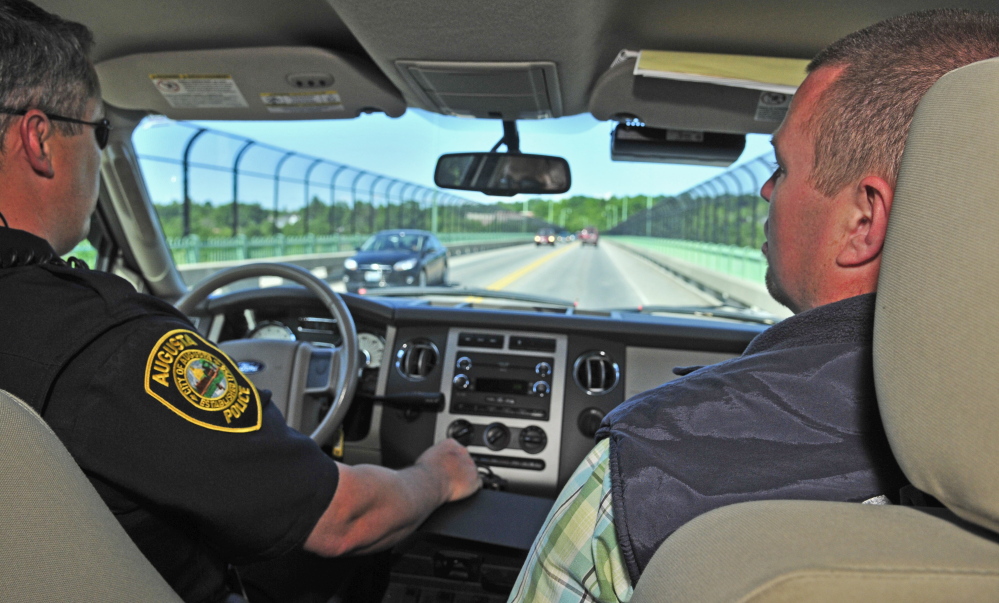
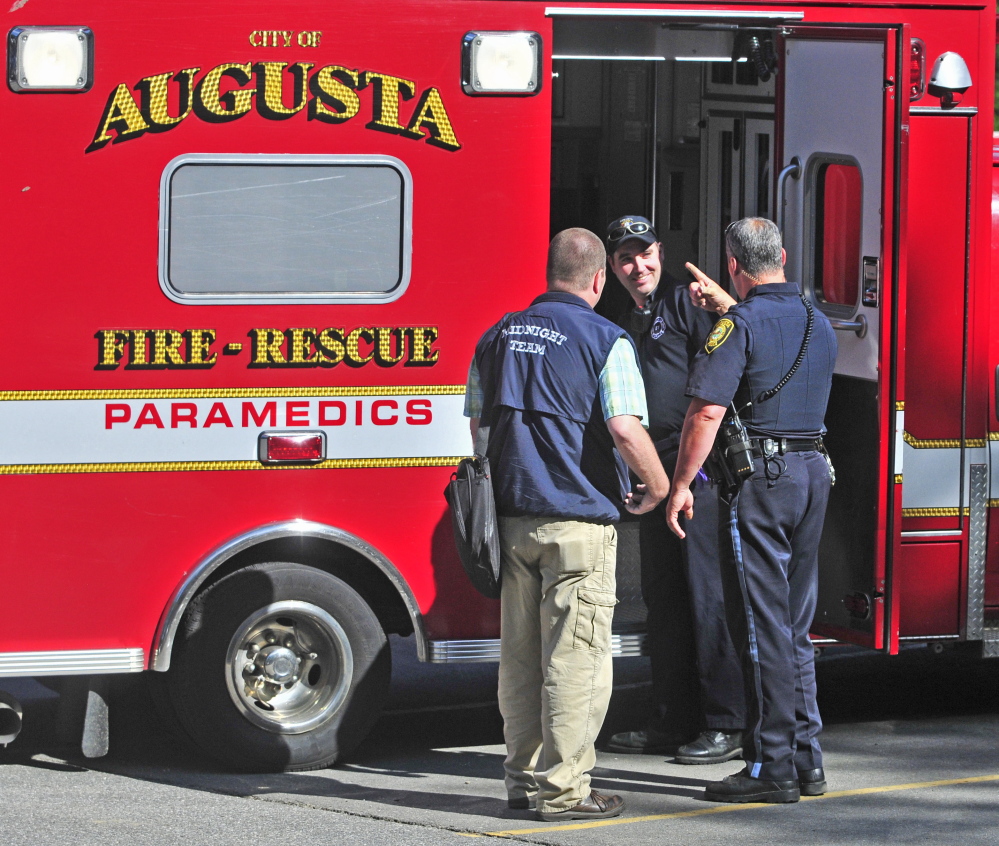

Success. Please wait for the page to reload. If the page does not reload within 5 seconds, please refresh the page.
Enter your email and password to access comments.
Hi, to comment on stories you must . This profile is in addition to your subscription and website login.
Already have a commenting profile? .
Invalid username/password.
Please check your email to confirm and complete your registration.
Only subscribers are eligible to post comments. Please subscribe or login first for digital access. Here’s why.
Use the form below to reset your password. When you've submitted your account email, we will send an email with a reset code.